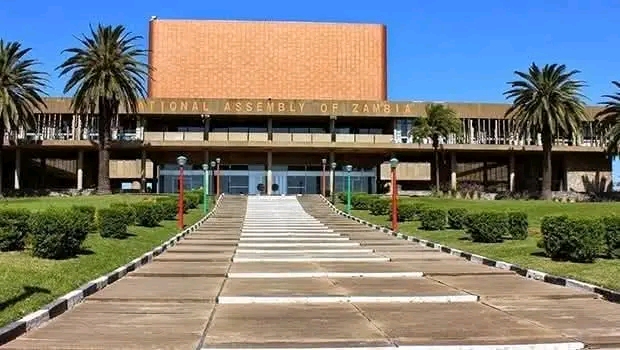The Constitution of Zambia (Amendment) Bill No. 7 of 2025 has been formally presented to the National Assembly, initiating what is anticipated to be a thorough process of legislative review and discussion.
Justice Minister Princess Kasune introduced the Bill on the floor of Parliament on Wednesday, commencing discussions on a series of proposed constitutional amendments that could significantly alter Zambia’s political and governance structure.
“Madam Speaker, I present a Bill titled the Constitution of Zambia (Amendment) Bill, National Assembly Bill No. 7 of 2025,” Minister Kasune stated as she introduced the Bill.
Speaker of the National Assembly Nelly Mutti referred the Bill to a select committee for in-depth examination and requested that a report be submitted by 29 July 2025. She encouraged all Members of Parliament to engage actively in the process.
“Honourable Members wishing to provide input on the Bill are welcome to do so. Even you, Honourable Members, are invited to appear before the select committee—it is not exclusively for the public,” Mutti remarked.
SIGNIFICANT CHANGES PROPOSED
The Bill suggests several major amendments to the 2016 Constitution. Among the key proposals is the increase in the number of elected parliamentary seats from 156 to 211, in accordance with new constituency boundaries recently established by the Electoral Commission of Zambia (ECZ).
Another significant reform is the introduction of a mixed member proportional representation system. This would allocate additional parliamentary seats to under-represented groups—specifically, up to 20 women, 12 youths, and three individuals living with disabilities—based on the performance of political parties in general elections.
Bill 7 also aims to repeal the two-term limit for mayors and council chairpersons, potentially allowing them to serve indefinitely, provided they continue to be elected.
ALTERATIONS TO ELECTORAL AND GOVERNANCE PROVISIONS
A notable change proposed in the Bill is the modification of by-election procedures. According to the proposed amendments, by-elections would only be initiated when an independent MP, mayor, or councillor vacates their office. For candidates endorsed by political parties, the party would be permitted to nominate a successor without the need for a new election.
Additionally, the Bill proposes to alter the timing of parliamentary dissolution, shifting it from 90 days before a general election to just one day prior. However, Parliament would still suspend legislative activities during the final 90 days leading up to an election.
Other important provisions include:
- Synchronizing the five-year terms of Parliament and local councils;
- Revising the qualifications for the Secretary to the Cabinet;
- Clarifying the legal definitions of “child” and “adult”;
Establishing clear timelines for resolving election petitions;
Defining the timeline for a vacancy in the office of a Minister or Provincial Minister to occur 90 days before a general election.
Justice Minister Kasune highlighted that the amendments aim to improve governance, encourage inclusivity, and rectify inconsistencies within the current constitutional framework.
The select committee is expected to solicit submissions from Members of Parliament, civil society organizations, legal experts, and the public prior to finalizing its report.
The Bill must undergo second and third readings before it can become law. As a constitutional amendment, it will require the backing of at least two-thirds of the National Assembly to be enacted.








